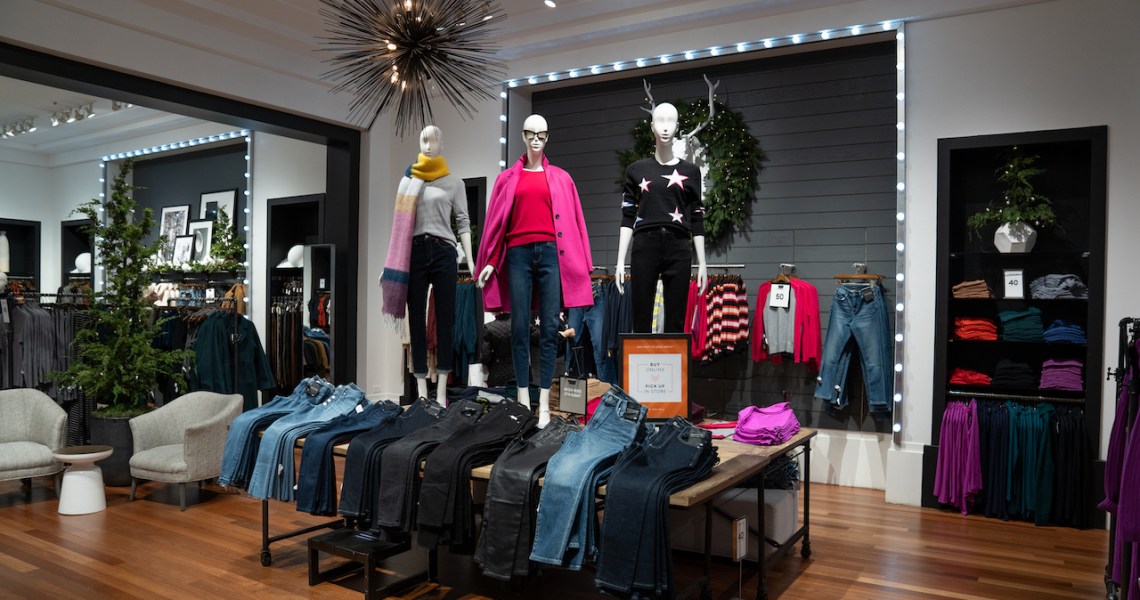2019 was a big year for the launch of clothing rental services, including URBN’s Nuuly and clothing retail service Caastle’s new Haverdash. While big services hit the market to take on incumbents like Rent the Runway, retailers like Banana Republic also shifted to launch their own services in-house, signaling an appetite for single-brand rental services moving into 2020.
“The more women who rent, the more that rental is becoming part of the conversation. There is so much opportunity to bring more women into the category,” said Jessica Dvorett, svp and general manager at Caastle (which operates Haverdash).
The shift for brands launching their own services won’t be easy, as companies as big as Rent the Runway have recently faced growing pains. The company hit several customer service glitches in 2019, even briefly shutting down subscriptions to new members following mass delays and missing orders caused by a glitch in warehouse technology. There’s dry cleaning and washing to worry about, not to mention shipping costs and inventory management. But the demand for rental is growing, and companies are responding. Banana Republic, Vince, American Eagle and Bash all have launched their own rental services.
In November, fast-fashion giant H&M even announced it planned to test clothing rental in a push to become more sustainable.The company is currently testing the program through its flagship store in Stockholm, charging $37 and allowing customers to rent items from a collection of 50 pieces to start. The test program will run for three months before H&M decides whether or not to expand it.
“A lot of people are jumping into the rental game, and that will continue, but there are going to be a lot of bumps in the road for the average, middle-of-the-mall retailer,” said JoAnn Martin, vp of industry strategy and market development at software and consultancy company JDA Software.
Even so, companies that have launched rental services plan to grow them in 2020, like Banana Republic with its Style Passport service.
“[Style Passport] allows us to add incremental revenue, drive profitability, attract a new, younger, highly engaged customer and gather customer preference,” said Tubbs. “For the first year, our focus is on learning the ins and outs of the business, and acquiring and retaining new customers. However, we are definitely looking into additional opportunities to scale for the future.”
While still early days for Banana Republic, which launched its service Style Passport in September, Tisha Tubbs, senior director of new business initiatives at Banana Republic, said the company has seen success early on. Customer retention, she said, is higher than expected month over month, but she declined to share specifics. Powered by Caastle, the service allows customers to rent three items at time, with unlimited exchanges and free shipping and returns for $85 a month.
The opportunity for brands is expanding as the online clothing rental market continues to grow. It’s expected to reach $1.96 billion by 2023, up from $1.18 billion in 2018. Plus, as more companies enter the market and competition starts to grow, Dvorett said she believes more customers will come into the rental market.
“There are going to be so many opportunities for women to find the service that offers the best combination for them from a clothing and price perspective. There was only a $100 proposition at one point, and that was very restrictive. Now that price point is really opening up as different players enter into the market,” said Dvorett.
A recent survey from JDA Software found that of the 25% of consumers its surveyed who have used a rental service, about 75% said they traditionally use it to rent something for a special occasion. However, Martin said that retailers offering customers a strong assortment of products to rent from at a good price point will likely win in the rental space.
“Vertical brands like Banana Republics and Urban Outfitters have the benefit that most of them have really strong loyalty programs, and those loyalty programs give them richness of data. They can leverage that data in predicting demand [for products] and have the potential to be highly successful. It’s just probably to a narrower market,” Martin said.




